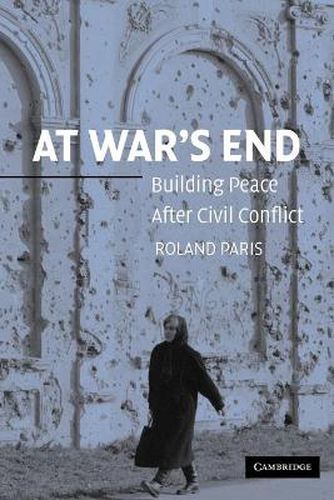Readings Newsletter
Become a Readings Member to make your shopping experience even easier.
Sign in or sign up for free!
You’re not far away from qualifying for FREE standard shipping within Australia
You’ve qualified for FREE standard shipping within Australia
The cart is loading…






All fourteen major peacebuilding missions launched between 1989 and 1999 shared a common strategy for consolidating peace after internal conflicts: immediate democratization and marketization. Transforming war-shattered states into market democracies is basically sound, but pushing this process too quickly can have damaging and destabilizing effects. The process of liberalization is inherently tumultuous, and can undermine the prospects for stable peace. A more sensible approach to post-conflict peacebuilding would seek, first, to establish a system of domestic institutions that are capable of managing the destabilizing effects of democratization and marketization within peaceful bounds and only then phase in political and economic reforms slowly, as conditions warrant. Peacebuilders should establish the foundations of effective governmental institutions prior to launching wholesale liberalization programs. Avoiding the problems that marred many peacebuilding operations in the 1990s will require longer-lasting and, ultimately, more intrusive forms of intervention in the domestic affairs of these states.
$9.00 standard shipping within Australia
FREE standard shipping within Australia for orders over $100.00
Express & International shipping calculated at checkout
All fourteen major peacebuilding missions launched between 1989 and 1999 shared a common strategy for consolidating peace after internal conflicts: immediate democratization and marketization. Transforming war-shattered states into market democracies is basically sound, but pushing this process too quickly can have damaging and destabilizing effects. The process of liberalization is inherently tumultuous, and can undermine the prospects for stable peace. A more sensible approach to post-conflict peacebuilding would seek, first, to establish a system of domestic institutions that are capable of managing the destabilizing effects of democratization and marketization within peaceful bounds and only then phase in political and economic reforms slowly, as conditions warrant. Peacebuilders should establish the foundations of effective governmental institutions prior to launching wholesale liberalization programs. Avoiding the problems that marred many peacebuilding operations in the 1990s will require longer-lasting and, ultimately, more intrusive forms of intervention in the domestic affairs of these states.